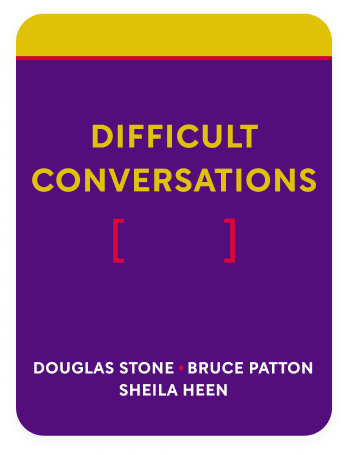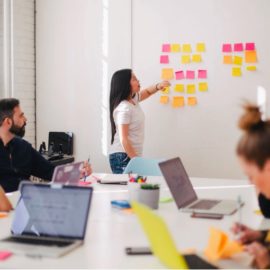

This article is an excerpt from the Shortform book guide to "Difficult Conversations" by Douglas Stone, Bruce Patton, Sheila Heen. Shortform has the world's best summaries and analyses of books you should be reading.
Like this article? Sign up for a free trial here .
Are you looking for Difficult Conversations quotes? What can these quotes teach you about conflict resolution?
Difficult Conversations was written by members of the Harvard Negotiation Project, whose goal is to establish and circulate conflict resolution strategies. The following Difficult Conversation quotes highlight some of the key conflict resolution themes discussed in the book including blaming, intentionality, and listening.
Keep reading for Difficult Conversation quotes and their meaning.
Difficult Conversations Quotes
“Listening well is one of the most powerful skills you can bring to a difficult conversation.”
One of the most common complaints the authors hear about difficult conversations is that the other person isn’t listening. The reality is that people stop listening when they don’t feel heard. If we feel like someone isn’t listening to us, they probably feel the same way about us. The way to get someone to listen to you is to put a genuine, concerted effort into making sure they feel heard first.
“Blame is about judging, and looking backward.”
Blame is about judgment and looking backward as opposed to moving forward towards a mutually accepted resolution. Even if you can answer the question of who’s to blame, it doesn’t usually help solve the problem. With blame comes punishment, and punishment comes at a cost — understanding and punishment don’t usually go hand in hand. When people are afraid of being blamed and thus being punished, they’re usually less likely to be truthful or open about the matter, and less likely to apologize, since it seems like an admission of guilt.
“Studies show that while few people are good at detecting factual lies, most of us can determine when someone is distorting, manufacturing, or withholding an emotion.”
Unresolved or unaddressed feelings can come through in our tone of voice, our posture, and our language. And you might think you can conceal it, but you’re wrong. Psychological research shows that most people are bad at picking up on factual lies, but good at picking up on unspoken emotion. Unexpressed emotions can even cause you to totally break away from relationships based on how many unresolved feelings you have.
“The truth is, intentions are invisible. We assume them from other people’s behavior. In other words, we make them up, we invent them.”
We all know our own intentions, so we never question them. But we never know the other person’s true intentions unless we ask — and we rarely do that in the midst of a conversation. Instead, we try to read people’s intentions based on their behavior and the impact it had on us. This often leads to unfounded assumptions. We assume that cutting remark was meant to hurt us, even though we know our own remark that seemed to hurt the other person’s feelings wasn’t meant to hurt them. All in all, how we respond to something is not sufficient evidence to draw conclusions about someone else’s intentions.

———End of Preview———
Like what you just read? Read the rest of the world's best book summary and analysis of Douglas Stone, Bruce Patton, Sheila Heen's "Difficult Conversations" at Shortform .
Here's what you'll find in our full Difficult Conversations summary :
- Why healthy relationships need difficult conversations
- The 3 conversations that happen within each difficult conversation
- How difficult conversations go wrong and what to do about it






